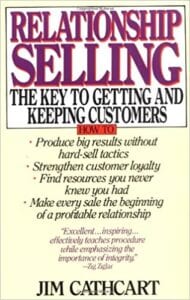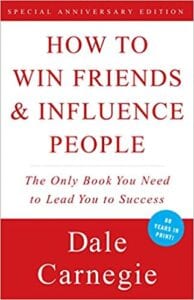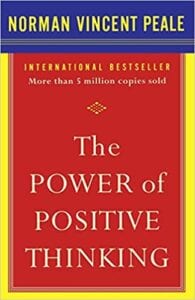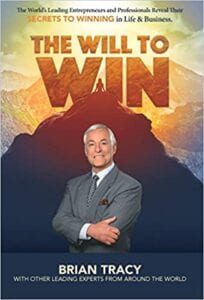Relationship Selling With Jim Cathcart
Posted by John Livesay in podcast0 comments
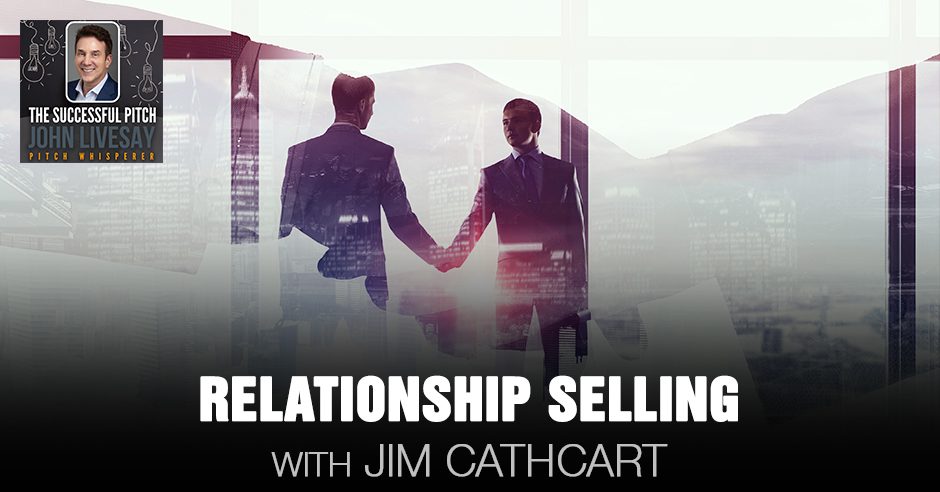
Selling is more than just pitching your product. John Livesay’s guest today is Jim Cathcart, a professional speaker, Hall of Famer, and author of Relationship Selling. In this episode, Jim explains how effective selling combines the elements of storytelling and relationships. Did you know that consumers are guided by their feelings when they purchase? That’s right! So if you’re empathetic to your customers and you have a relationship with them, efficient selling becomes easier for you. Want more strategies on relationship selling? Join in!
—
Listen to the podcast here
Relationship Selling With Jim Cathcart
Our guest is Jim Cathcart, a giant and a Leader of speakers and salespeople. He is the author of Relationship Selling. He has spoken to over 3,000 different events over many years and has been to China over 73 times, speaking to those crowds. We talk about the will to win requires the will to work. When you go for creating a story that people feel they are in, that is a success story. Enjoy the episode.
—
Our guest is Jim Cathcart, who has for many years written over twenty books and had over 3,300 paid speaking engagements, including 70 plus engagements in China. He has been selected as one of the top five speakers on sales and service. He has delivered many talks in many countries that he is an industry leader. His clients span all industries. He is listed in the Professional Speaker Hall of Fame. He is the author of twenty books but one of the big ones is Relationship Selling. I’m so thrilled and honored to have him on. Jim, welcome to the show.
Thank you, John. It’s great to be with you.
Your TEDx Talk has over two million views. Congratulations. That’s the power of a good story.
We are in your line now.
You talk about your story of origin in your TEDx Talk. That is one of my favorite questions to open the show with. Would you share with us how you’ve got into the speaking business, how hearing one person sometimes can change your life and who that was for you?
There may well be someone or multiple ones reading this, who get an idea from what we are saying. Nothing necessarily that it’s our idea but that they have an idea because of what they hear. The direction of their life starts to change and becomes profoundly more meaningful and fulfilling than ever before. It certainly happened for me. I grew up in Little Rock, Arkansas. I was born in 1946. It’s the beginning of the Baby Boom. My dad was a telephone repairman. My mom was a housewife taking care of me, my little sister and my invalid grandfather and grandmother who were with us.
I expected a normal, ordinary unremarkable life. I was not a superior student. I was a good student but not on the honor roll. I never was an athlete. I had not been encouraged to go for the gold ring, try to do a big deal and make my life an epic success. I just figured I grew up, be a nice guy, have an ordinary home in an ordinary neighborhood, be a middle manager at the phone company, retire at 65 and die at whatever the statistical date was for my gene pool.
One day, in my twenties, newly married, no college degree, no money in the bank, 50 pounds’ overweight, two-pack-a-day smoker, new baby at home, I’m working for a government agency, the Housing Authority. I was an assistant to the loan specialist, which was just above entry-level. He didn’t need an assistant. I was bored to tears. I was making $500 a month and had nothing to do most days. One day, I was sitting there. I had read all the books on urban renewal for the Housing Authority. That didn’t interest me so I had read the Bible cover to cover at work in three months.
[bctt tweet=”Nurture your nature.” username=”John_Livesay”]
In the next room, there is a radio playing. The voice I heard was not John Livesay, it was Earl Nightingale, the Dean of Personal Motivation. That day in 1972, he said something that has stuck with me and changed the direction of my life, “If you will spend one hour extra every day studying your chosen field, in five years or less, you will be a national expert in that field.” I thought, an hour a day, five days a week, 50 weeks a year, that is 1,250 hours.
If I studied one narrow subject for that, not one subject like medicine but one like skeletal structure, bone surgeon orthopedist, at five years, take longer than that to get my Medical degree but five years of study only on orthopedics, I would be a very knowledgeable person on orthopedics. I wasn’t interested in medicine. I was interested in what the guy on the radio was doing. I said, “I want to do what Nightingale is doing but I didn’t know what that was. I knew it was the field of human development. This was at the beginning of what became later known as the Human Potential Movement.
There were no such thing as professional speakers. They existed but nobody had categorized them as such. There weren’t many of them. The National Speakers Association hadn’t yet been formed. The self-help section of the bookstore or the library didn’t exist. There were a couple of books, Think and Grow Rich, How to Win Friends and Influence People, The Power of Positive Thinking, end of the category. Now, the entire sections of a bookstore would be devoted to that. I didn’t know how to get into his field nor what it meant. I decided to take his advice. I dedicated myself to a one-hour minimum, usually 2 or 3 hours, every day I could, studying what the scientists call applied behavioral science, how to be successful. I read those books I mentioned. I met people who had read those books and that started more collaboration. I heard records, a large disk that has a little hole in them. Kids don’t even know what the records are in a lot of cases. I listened to long play records of Earl Nightingale, Napoleon Hill and W Clement Stone. This was even before Zig Ziglar. I heard audio cassettes. I became fanatical about the field of personal development.
Within a couple of years, I was leading group discussions on goal setting and interpersonal skills, things like that, in the Jaycees, the Junior Chamber of Commerce for free after working on weekends. After a year or so of that, I’ve got a job leading training courses other people had written. I then was able to go out on my own. Sure enough, five years later, I was a full-time trainer and speaker, teaching courses, at first other people’s courses, and then my own. I bought a psychological research firm. I did my own original research and now I have written twenty books and done more things than I ever dreamed of doing back in the day. There is more to that story if you want to explore it.

Relationship Selling: If you spend one hour extra every day studying in your chosen field, you’ll be a national expert in that field in five years or less.
There is so much to unpack there. Every speaker has an intention, goal and objective of making an impact. To hear a story of somebody well known making that impact, totally changed the trajectory of your life. Think of all the people that have now had that ripple effect. That is part of the reason why I love that story so much and the willingness to do the work.
I co-authored a book with Brian Tracy in 2020 called The Will to Win. My chapter was the theme chapter, the will to win, positioned his first and mine last. Other co-authors did chapters in between. Mine was the will to win requires the will to work, the will to show up, the will to endure the pain, the will to be embarrassed and humiliated from time to time by failing, the will to persist when you feel like there is no hope. Somewhere there is an answer. There are lots of will tools that total up to the will to win. The desire to win is useless. The will to win is a whole bunch of other things that combine.
We are certainly going to make that one of the tweets from the episode, “The will to win requires the will to work.” Nobody loves that alliteration more than I do, Jim. I like that on so many levels. One of your more famous books, certainly something that had a big influence on me is this concept of Relationship Selling. I heard you in another interview talking about there is no such thing as a natural-born seller.
There are natural-born talkers. It’s like your specialty is storytelling. There aren’t natural-born storytellers but there are people who have a natural ability to quickly learn storytelling. Some people find that very difficult to learn but can. Once you understand story structure, concept, how to interact with people, how to articulate a particular story in a way that makes it both emotionally and intellectually appealing, that’s learnable. I went to my 30th high school class reunion some time ago. I remember talking with one of my old classmates who said, “What are you doing now?” I said, “I’m a professional speaker.”
[bctt tweet=”The best story is one where people feel they are in it.” username=”John_Livesay”]
He said, “What do you speak about, just anything?” I said, “Sure. They just pay to hear my voice.” He said, “Did what?” I said, “No. Of course, not. I have a specialty. That is what I focus on. It’s sales and human development.” This guy said to me, “You always were a good storyteller.” I said, “What? I was?” He said, “Yeah.” I said, “I wish somebody told me.” John, I didn’t know I was a good storyteller. I grew up in a family of storytellers, in a culture in the South, where storytelling was commonplace. I’ve got a kick out of doing it. I enjoyed performing so I had a little flair to it. It was starting to develop even back in high school.
It’s so funny sometimes I will get off the stage, back in the day, literal stages or even virtual talks, people say, “You are a natural.” I used to go, “What? I worked on this.” Now I just smile and say, “Thank you.” That is a very high compliment because you can’t see the word behind it that is struggling.
Let me interrupt for a second and complete the answer to your earlier question, natural-born salespeople. There are eight stages in the sales cycle, preparation, targeting the right people, connecting with them so that you gain their trust, assessing their needs and wants, solving their problem, convincing them to commit to buying, assuring that they are satisfied, managing yourself and managing your sales career. That’s a different skillset. You might be natural at 1 or 2 of those. For the others, you are going to have to learn or buy resources or subscribe to something that will provide that for you.
I’m so glad you went through all eight. For me, the bookends are the two of the most important ones. Let’s start at the end. This is the one I think most people do not even have an awareness of let alone do, which is managing your career and your own persona as a professional and continuing to learn, refining your skills and not being so dependent on anyone’s job to be at that mercy. At the beginning of it is the need for preparation. One of my favorite quotes is from Arthur Ashe, the tennis pro, “The key to success is confidence. Key to confidence is preparation.” I know in my sales career, that was always the key to my success. I was willing to prepare for every single call. Most people, “I have been doing this long enough. I will just wing it. I will see what comes to me in the moment or whatever.”
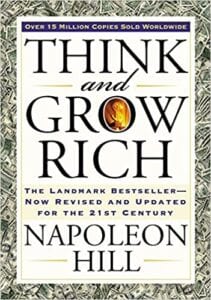
Think and Grow Rich: The Landmark Bestseller Now Revised and Updated for the 21st Century (Think and Grow Rich Series)
It’s like the person that gets up to give a speech and they say, “I had these notes,” but tear it up and they wing it. Afterward, it just makes me want to go up to them and say, “You could have been so much better.” It’s not that you need to read this. It’s just that if you don’t do that, organize everything and then follow some format, then we are not going to be in on it. What is going on for you?
Do you think Clint Eastwood gets in front of a camera without rehearsal? No. Do you think Tiger Woods doesn’t practice? Of course, he still does. Yet somehow some people think they don’t have to do that. The other thing you talked about is storytelling and selling is those little details. In your TEDx Talk about How to Believe in Yourself that has over two million views for a reason. It’s because you paint a picture in such detail that people see themselves in it. One of the phrases you talk about is going to McDonald’s regularly, getting a relationship going and then everyone’s worst nightmare. You get the audience to describe what that is. I’m going to let you pick the story up there. I think you know the detail. I’m looking for people’s mindset is as opposed to just being a crowd.
I had the habit of going to breakfast alone every morning for many years. I would do that because that was when I would get focused. That is when I would do the business side of selling, which was my first book and that was with Dr. Tony Alessandra. That was the managing sales part of that and managing your career. I went to McDonald’s every morning. I would not take a stack of work. I would take an empty pad. I would write goals and work on them. This is with McDonald’s for the first several years. When I found a cool coffee shop in La Jolla, California, I upgraded a bit on the cuisine.
At McDonald’s in Tulsa, Oklahoma long ago, I went there every morning. One morning, I pulled up and saw what you would hate to see at McDonald’s, which is empty buses in the parking lot. The way I set that up with an audience is I tell them about this habit of breakfast alone. One morning, I saw the sign of my restaurant in the distance and I do the little golden arches. They snicker and then I tell them, it’s McDonald’s. I say, “In that morning when I’ve got to the parking lot, I saw the danger sign.” Now in a McDonald’s parking lot, if you want to eat there, what would be the danger sign to you? Someone always yells out, “A bus.” I pause, I just do the gesture, “Two” and I say, “Two buses empty and a McDonald’s parking lot equals what in the lobby?” They start thinking and I say, “45 people per bus, you got 90 head ready to graze in the lobby of this McDonald’s. I’m about to add one to the mix.” When I’m telling the story, I do it this way, “I squeezed through the door into the crowd. I’m looking for the line that moves the fastest, the one that will always stop if you get in it.” Sure enough, that happened.
[bctt tweet=”The will to win requires the will to work, the will to show up, and the will to endure the pain.” username=”John_Livesay”]
I heard my name, “Mr. Cathcart.” I look around like I’m there again, “Mr. Cathcart” and I look up at the front. It’s the woman that works there. Grandma is her nickname. Her name is Marilyn. I said, “Yes?” She said, “Your breakfast is ready.” I’m leaving out some parts of the story that set that up. She knew me from seeing me every morning and me always ordering the same thing. When the crowd was there, she got my order, fulfilled it and set it off to the side. She said, “Mr. Cathcart, your breakfast is ready,” and went on serving other people. After I have told this story and had some laughs, I go back to the audience and analyze the scene. I say, “What did it cost her to do that?” They tell me it’s the cost of the breakfast. I said, “No.” It took her fifteen seconds of extra time. Since she said the breakfast was free that morning, she didn’t charge me. It took her the net cost of that breakfast. The revenue loss is the gross cost. What do they get? Six years of customer loyalty while I was in Tulsa, followed by 45 years of free advertising, including the ad that I just gave.
You talk about the big takeaway for everyone is we do the majority of things in our life, buy things, return as loyal customers based on how it makes us feel.
We do the things we do to achieve the feelings we want, the feeling of being correct, strong, successful, safe. The feelings we want, not just to attain the things we need.
That is one of my favorite insights into human behavior, which if you understand yourself, that completely changes how you sell. From there, people can have relationships, as you said in your book.
It also helps you be a better listener and a better empathetic person in selling because if you understand that all people, self-included, do the things we do to achieve the feelings we want then it begs the question. I’m about to make a sales presentation to John. What does he want? What feelings does he want from the things I represent as a product or a service? Does he want the feeling that he is going to be more successful with me because there is a higher margin of profit? Does he feel like he is going to be able to relax a little bit more because I’m saving him time, money and effort? Does he want to be admired more because he is the first on his blog to have one of my products? There is a feeling behind it. If you understand the feeling, everything else will commit to working.
Would you agree then based on what you just said that people buy emotionally and then back it up with logic?
People say, “They buy with logic.” No. They analyze with logic, rationalize, justify and then they make the decision. Do I want it or not? Yeah. Is that enough information? Yeah. That one, just a calculator going, “Do, do, total.” That was a shift from logic to feel. That moment of decision occurs at the feeling level but we get there through the logical passage.
What do you think makes a good story when someone is telling a story either as a speaker or as a salesperson?
[bctt tweet=”We do the things we do to get the feelings we want rather than just the things we need.” username=”John_Livesay”]
They feel they are in it. I have never given that an answer before because I have never had anybody asked me that way, not a fellow storyteller like yourself. The number one element of a story is they feel the moment has been suspended. They are now in the story. I was on my motorcycle. I pull up to the intersection. This guy looks over at me. He hadn’t decided yet, whether I’m a jerk and an idiot for driving a motorcycle or I’m cool. I give him my best Fonzie. He goes, “Hey.” I know I have made it. I just made that up on the spot while we were talking. Didn’t you feel like you were there at the intersection?
I visualized you in a leather jacket. I visualized the Fonzie. I visualized everything. I loved how it was so binary, the choices, it’s very funny. What advice would you have for someone who either wants to get into speaking or wants to grow their speaking career?
I have had a lot of people especially in China put you on a pedestal over there. “Teacher, “Master, what do I need to do to become a great speaker?” First, become a great person and then agree to speak. I’m serious about that. That is not just a flip and answer. If you are not a good person, then your speeches are going to be data dumps or performances. They are not going to be a real sharing between people. If you want to become great at something, figure upfront. You’ve got to become a great person. To achieve and sustain, there is the keyword, sustain great things. Anyone who came by accident hit a homerun one or a homerun once but you are not going to repeat that or even get close to repeating that unless you have got it all together.
How do you become a great speaker? You become a better and better person every day of your life, a more understanding, caring, disciplined, professional, knowledgeable, skilled, practice, structured, playful and interested person. Do you want people to be interested in you? Be interested in them. Like my son, when he worked at a mailbox when he was in college, he said, “Dad, you know how to get a lot of mail? Send a lot of mail.” How do you become an interesting person or get people to be interested in you? Take an interest in them. As a speaker, how do I get rid of my nervousness? Stop thinking about yourself. Think about the message you want them to receive and about how they might best receive it. Forget yourself and your nervousness will disappear.
Stop thinking about yourself and start thinking about them.
Only about them and that takes a lot of learning to do. Also, if you want to be a good speaker, go speak 100 times for no pay in any circumstance that you can find, in a basement of a church, in the summertime, in the South with no air conditioning at 160 degrees and 100% humidity. Go speak on the bay of a fire station to five people that didn’t want to be there and you have got them for half an hour, speaking on behalf of the local civic club. Go speak in somebody’s living room with kids running around and distractions and they didn’t turn off the TV. Go speak in front of a bunch of people that hate being there and resent you and would rather beat you up. Speak in a bar when there is too much noise and the jukebox is playing and people are yelling. I’m talking about giving speeches, not conversation.
Also, never speak to an audience that you can’t bring something valuable. It’s not about making a sound with your mouth. It’s about making sense with your mind and theirs, making that connection. They say, “I’m a good speaker.” Are you a good speaker when someone dies in the audience? Are you a good speaker when the building catches on fire and the rooms got to be evacuated? I have had all these things happen. I have had emergent medical emergencies. Luckily, no one died in the audience. Are you a good speaker when they announced that the founder of the company passed away this morning? Now, here is our guest speaker. Are you a good speaker when the room is four degrees and everybody is just dying to go somewhere warm? What about when they are all drunk? People say, “I’m a good speaker.” Prove it. Let me choose the circumstances. You choose the audience, I will choose the circumstances.
I see so many similarities between what you said about speaking and actors. I finished listening to Matthew McConaughey, his Greenlights book. He is a fascinating, interesting person separate from his acting career.
He was a student of Og Mandino, one of my former friends. He has passed away now. He is one of my all-time heroes.
Actors are willing to work off-Broadway for very little money or no money to practice their craft. There are a lot of similarities there. I think it’s the willingness to see yourself almost as an artist, which actors tend to do. I don’t know that a lot of speakers see themselves that way. That is what my big takeaway is from what you described.
I went to a meeting in Santa Barbara one time. I was all dressed in a suit looking lovely. I remember the client was a company you never hear about anymore. I don’t know if they exist in that form, Wang computers. Wang was a big corporation back in the day. I arrived at this resort in Santa Barbara. I’m in the meeting room. I’m there early because I’m the keynote speaker. The meeting room was set up completely wrong. It’s set up in a tunnel, like a board meeting for 60 some odd people. That is like speaking in a railroad car. I said to the houseman, “Excuse me. The room is all set up wrong. It needs to be classroom style.”
He said, “Do you want to change it? You change it yourself.” It’s just a few minutes before the people started arriving. I made a snap decision. I said, “Leave my room.” He said, “What?” I said, “Go,” because it was clear he wasn’t willing to help. He left the room and I locked the door. I took off my suit, tie, shirt and stripped to the waist. I reset the whole room. I then went to the restroom. I cleaned up a little bit. I put the suit back on. I unlocked the door. I said, “John, welcome to the meeting. Come on in.” All the people came in. We went on with business as usual.

Relationship Selling: If you want to be a good speaker, go speak 100 times for no pay in any circumstance that you can find.
Doing what it takes, people. That is a great story to leave and on. That is such a visual and a willingness to do what it takes to make it right, not just for the audience but for yourself. Let the audience put you on a pedestal. Don’t put yourself on a pedestal. I know you have been on a pedestal and you have earned that. In China with thousands of people coming to clamor like a Tony Robbins experience. I can’t thank you enough for sharing your passion, wisdom and most of all your humor with us.
You are very welcome. I’m enjoying our new friendship. Since we live in the same area, we’ve got to make plans to get together. I look forward to that. This will be the first of many occasions like this.
If people want to find you, where should we send them? What website?
Send them to Jim Cathcart anywhere on the web. I’ve got Cathcart.com, Wikipedia page, LinkedIn, Facebook, YouTube. Most all of it is free so dig in and enjoy. Send me a message.
Thank you so much. Thanks again, Jim.
It’s my pleasure. Take care, John.
Important Links
- https://Cathcart.com/
- Relationship Selling
- Think and Grow Rich, How to Win Friends and Influence People
- The Power of Positive Thinking
- The Will to Win
- Wikipedia – Jim Cathcart
- LinkedIn – Jim Cathcart
- Facebook – Jim Cathcart
- YouTube – Jim Cathcart
- How to Believe in Yourself – YouTube
- Greenlights
- Better Selling Through Storytelling Method Online Course
Wanna Host Your Own Podcast?
Click here to see how my friends at Podetize can help
Purchase John’s new book
John Livesay, The Pitch Whisperer
Share The Show
Did you enjoy the show? I’d love it if you subscribed today and left us a 5-star review!
- Click this link
- Click on the ‘Subscribe’ button below the artwork
- Go to the ‘Ratings and Reviews’ section
- Click on ‘Write a Review’
Love the show? Subscribe, rate, review, and share!
Join The Successful Pitch community today:
- JohnLivesay.com
- John Livesay Facebook
- John Livesay Twitter
- John Livesay LinkedIn
- John Livesay YouTube
Tags: Earl Nightingale, Good Speaker, McDonalds, Relationship Selling, TEDx talk, Will To Win

